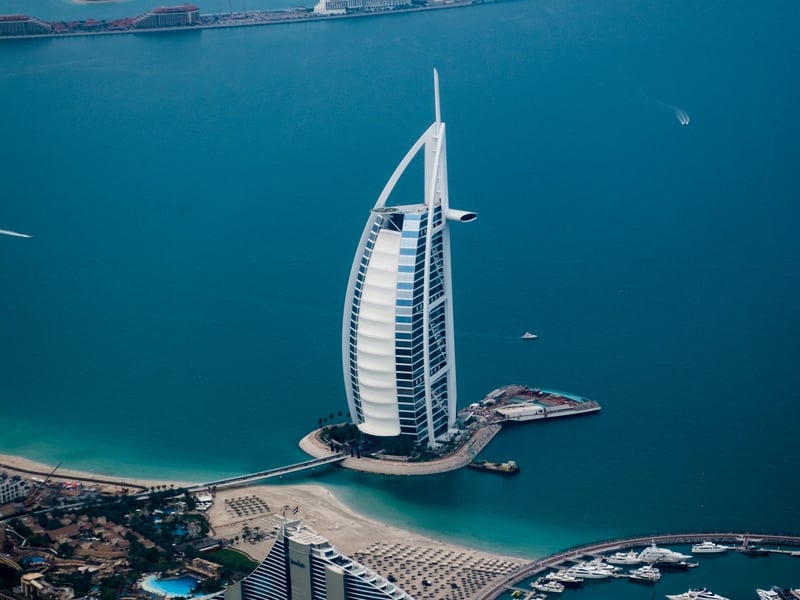
When considering market expansion into Dubai, many business leaders envisage Dubai's architectural heights and desert heat but don’t think that is also a gateway into the Gulf Cooperation Council (GCC) and underestimate the market potential. When considering market expansion in general, business leaders and marketing experts will look at a situational analysis, including:
- A PESTEL analysis considering the political, economic, sociological, technological, legal and environmental conditions that might affect what you do, how you do it and the likelihood of success.
- Market Size – what is the total addressable market?
- Market segmentation to better understand the opportunities and potential customers in your proposed new market.
- Analysis of your target audience for cultural differences, sensitivities, protocols and potential behaviours that may differ from your existing customer base.
- Customer profiling to identify what changes you will need to make to your buyer personas based on your understanding of the new market .
- Competitor analysis to check existing products, if or where you fit in the market and who you need to be aware of.
- SWOT (strengths, weaknesses, opportunities and threats) analysis based on the above will help to clarify your position and the work you need to do.
What is the GCC?
The GCC is a regional, intergovernmental political and economic union that consists of Bahrain, Kuwait, Oman, Qatar, Saudi Arabia, and the United Arab Emirates. It accounts for around 1.7% of global GDP ($3.464 trillion) or nearly four times that of Singapore, and it is home to phenomenal wealth and opportunity with a population of around 54 million people. The majority of those people are in Saudi Arabia (34.27 million), although, in many ways, Dubai has made the most notable commercial success of itself in recent years. Given the national's penchant for travel and foreign education, they are sophisticated connoisseurs of brands.
Energy remains a crucial driver for the region, and for years all of the countries have worked on how they can create non-oil-based jobs for their citizens. The UAE has been one of the most successful at transitioning to a more diversified economy. Pre-pandemic, it was a central international hub, creating a welcoming environment for business and tourism, particularly airlines, and we have no doubt it will open up better and brighter than ever.
Benefits of expanding to the GCC markets
Globally, the UAE has a strong reputation as a place to do business. However, within and beyond the UAE, there are numerous benefits to doing business throughout the GCC.
For example, the Emirati government has allotted significant funds to the development and expansion of non-oil-related industries. Establishing a business base in these parts of the world creates a gateway into Asia, Africa, Southern and Eastern Europe and the Middle East with modern facilities to accommodate international trade. The UAE's government is known for offering attractive tax incentives for doing business there. The region is very keen to attract leading worldwide brands, facilitating their entry into the market.
Many strong merchant families and companies have built their businesses through understanding the power of brands. As a case in point, the Alshaya Group is a very successful organisation based out of Kuwait. They bring global brand franchises to the country, region and beyond, such as Starbucks, H&M, Mothercare, Debenhams, American Eagle Outfitters, P.F. Chang's, The Cheesecake Factory, The Body Shop, M.A.C, Victoria's Secret, Boots, Pottery Barn and KidZania.
Meanwhile, Qatar is famously hosting the 2022 FIFA World Cup, investing in sports facilities and broader infrastructure to boost the country's standing on the global stage.
Saudi Arabia is also aggressively pursuing the strategy of hosting world-class sports events (notably boxing) and using it to open up the country to a worldwide audience.
What business leaders need to know about market expansion
This is a part of the world that invites international business. In particular, it seeks to support successful UK and US brands and businesses that want to establish themselves in the Middle East.
Nonetheless, while the countries in the GCC have a lot in common, they do operate separately. They need to be approached with tailored market expansion strategies as well as separate funding. As the World Cup suggests, there is competition between the states to achieve a hierarchical status.
This competition is important for business leaders to recognise, both in deciding where they want to begin market expansion into the GCC and pursuing other territories after that. For many, it makes sense to start in the UAE. However, each region has cultural differences and processes that need to be observed and may impact your brand rollout. Localisation is as important as anywhere.
For example - Saudi Arabia's Vision 2030 makes this especially clear, requiring businesses to have a headquarters within the kingdom to operate.
The GCC can be an exciting point of business development for solid businesses that want to introduce new products and services to the area. There's abundant opportunity there for both B2B and B2C organisations. As with all growth objectives, however, the key is in the planning.
If Dubai and the GCC are on your radar for market expansion, why not consider joining our expansion workshops, organised by GTM Global, where gigCMO hosts a free virtual CMO roundtable and you can learn from other business experts?




